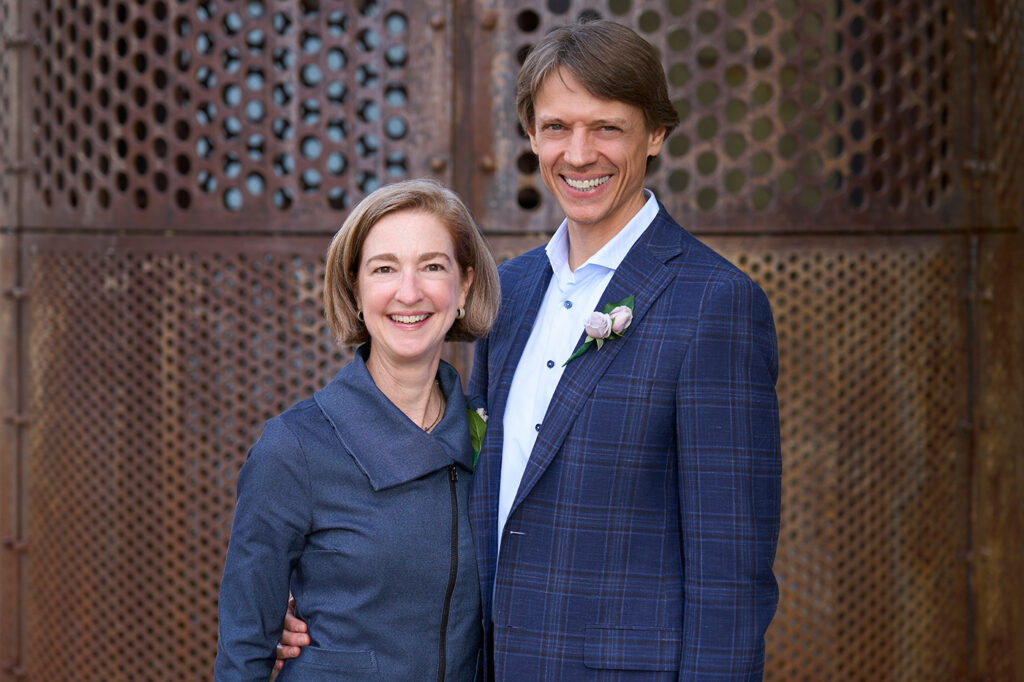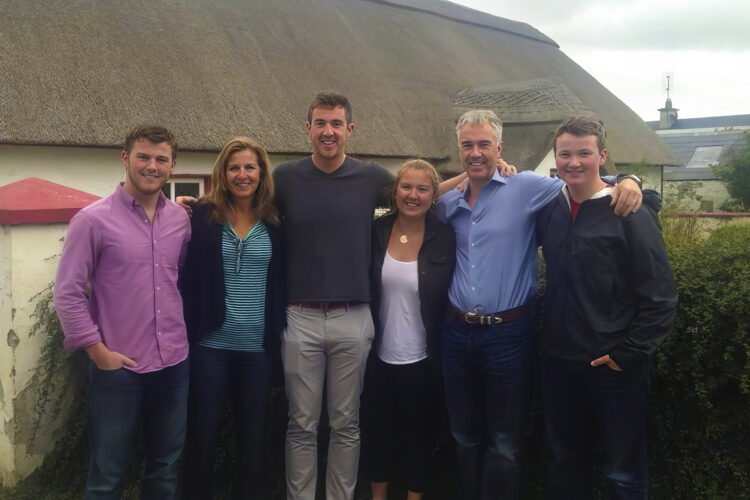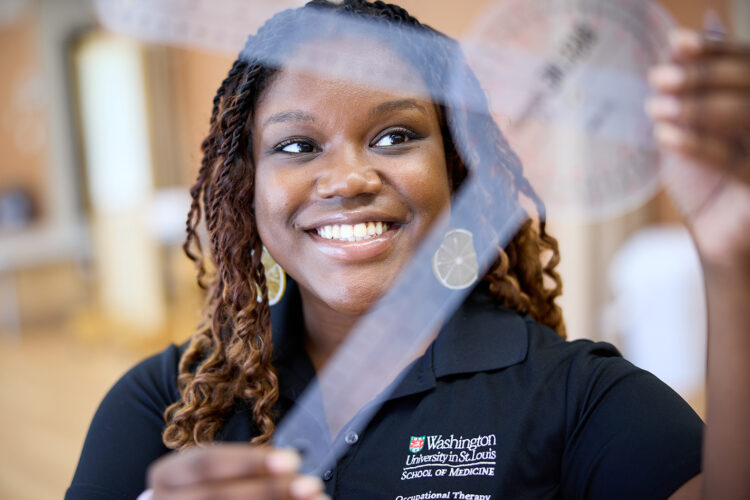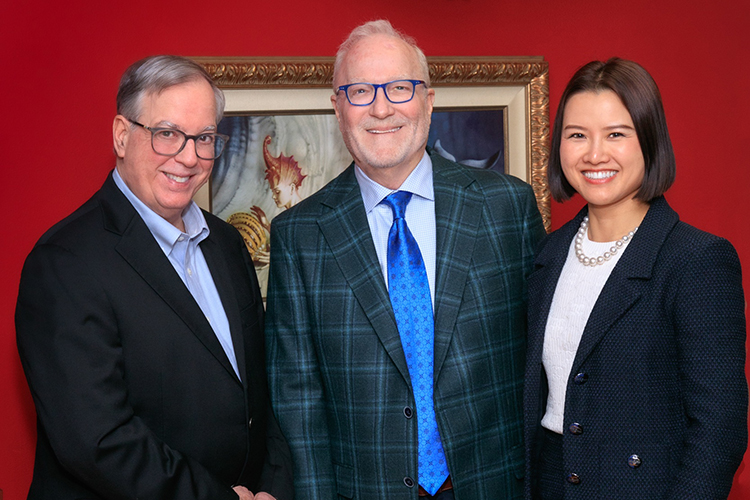St. Louisans Nancy Parker Tice, AB ’90, MBA ’98, and Paul Tice, BSBA ’90, JD ’94, have deep philanthropic roots, passed down to each of them by passionate, community-minded parents. Paul’s late father, Norman Tice, BSBA ’57, was a proud WashU grad who remained engaged with the university as a volunteer and donor. He sat on the Brown School National Council and earned a Distinguished Alumni Award from Olin Business School in 2003.
The Tices, who are parents to sons John, AB ’22, Eric, and Daniel, have continued this family legacy of service and philanthropy at Washington University in St. Louis. Nancy, an alderwoman for the city of Brentwood, Missouri, is a longtime advocate for the Gephardt Institute for Civic & Community Engagement and a member of its national council. Paul, founder and managing partner at Argos Capital Partners LLC, serves on the Brown School’s national council like his father, and he and Nancy were honored with the school’s Distinguished Volunteer Award in 2023.
Last fall, the Tices took on a new challenge when they assumed a three-year term as co-presidents of the William Greenleaf Eliot Society, WashU’s giving club for donors who contribute $1,000 or more to the Annual Fund. Here, the St. Louis-based couple discuss their involvement with the university and their role with the Eliot Society.
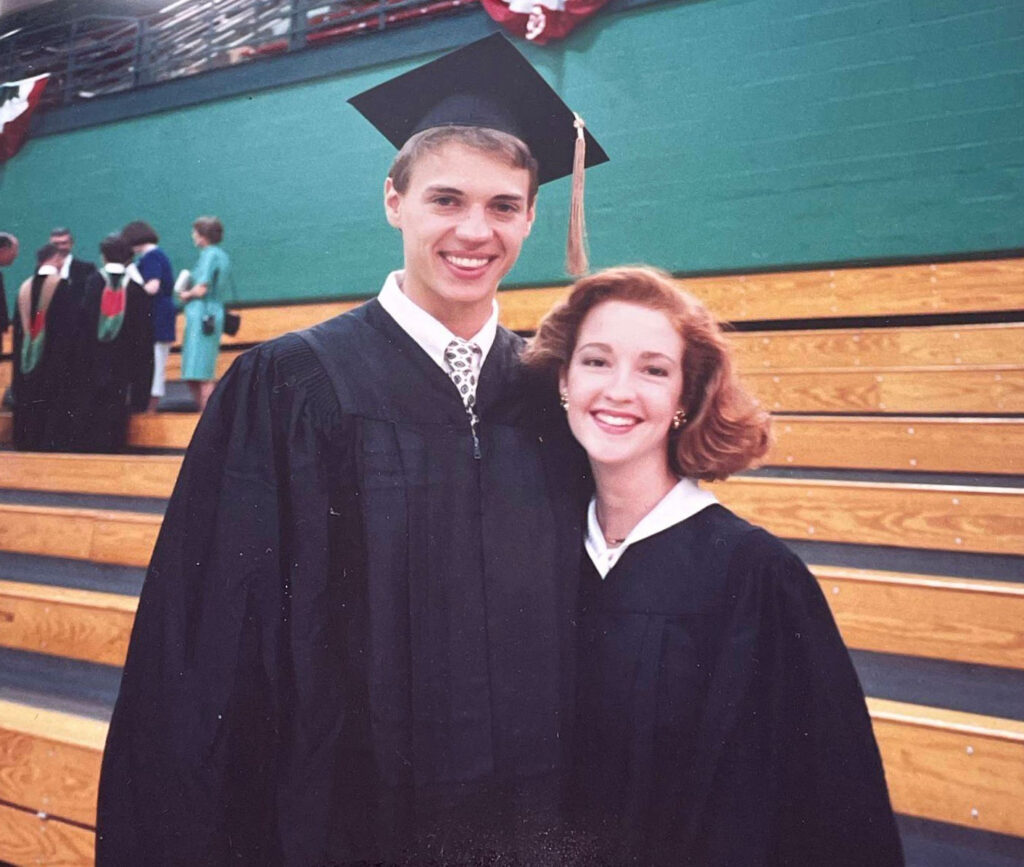
Tell me about your first year of leading the Eliot Society.
Paul Tice: It’s an honor to support the university in a more public volunteer role than we’ve ever had. Over the last year, we have come to appreciate the tremendous volunteers that make the Eliot Society happen. People across the country are so passionate and supportive of the university, telling their WashU stories and bringing their peers into the Eliot Society. We’re still learning the ropes of this job, but we understood right away that the volunteer network makes the Eliot Society a success.
Nancy Parker Tice: We’re very lucky to have tremendous WashU staff who support Eliot Society volunteers and assist us with our speaking engagements and communications to members. The co-presidency is a commitment, but we’re not doing everything ourselves. And we have a lot of things we want to accomplish. For instance, we want to increase outreach to alumni who are also WashU parents. We have a huge network here, and we want to make sure we aren’t leaving anyone out.
As Eliot Society co-presidents, why do you believe that annual giving at this level is important?
Nancy: We appreciate the university’s message about giving. You don’t have to contribute millions of dollars to make a difference. We need high-level donors, but we also need the donors who qualify for Eliot Society membership with annual gifts of $1,000 or more. Gifts at that level can help students buy interview clothes and shoes or provide a stipend that empowers them to take an unpaid internship. We want alumni and friends to understand the tangible impact of their giving.
Paul: The Eliot Society is so important because it recognizes the value of giving specifically to the Annual Fund. Every annual gift matters. These unrestricted funds enable the schools’ deans to advance strategic priorities like recruiting faculty, engaging in research, and supporting students. I have a much deeper appreciation for the power of annual giving since we started this role.
“The Eliot Society is so important because it recognizes the value of giving specifically to the Annual Fund. Every annual gift matters.”
Paul Tice
What inspires you to give to WashU?
Paul: We’re very enthusiastic about interdisciplinary education and students training across disciplines. We funded a scholarship for graduate students in social work and an additional program like law or architecture. Now more than ever, you need to have a holistic knowledge base, no matter your focus area.
Nancy: We also care about the university’s impact in St. Louis and continue to support a fund at the Brown School established by Paul’s parents in 2009. It enables Master of Social Work students to intern at the St. Louis Arc, an area nonprofit that offers services to people of all ages with intellectual and developmental disabilities. The award is named after Paul’s sister, Sharon, who was born with Down syndrome and found support and community through that organization. The Brown School has really led the charge for WashU to be in St. Louis, for St. Louis, and with St. Louis, and we’re pleased we can help the school make a difference in such a local, personal way.
What motivates you to keep volunteering for the university?
Paul: My office has an externship program so law students can experience an investment environment, and the WashU Law students who participate are just amazing. I like connecting with them, seeing how they work and sharing ideas. As you get older, you understand the impact that a large university can have, training so many smart and capable people to deal with the biggest problems in our world. It’s exciting to be a part of a leading-edge institution that attracts the best and brightest on the planet. Volunteering is a way to be part of that team.
Nancy: Another reason is to meet other active volunteers. In the past year, we’ve gotten to know other engaged alumni from different eras through the Eliot Society. It’s been wonderful working with different people who really care about this great institution.
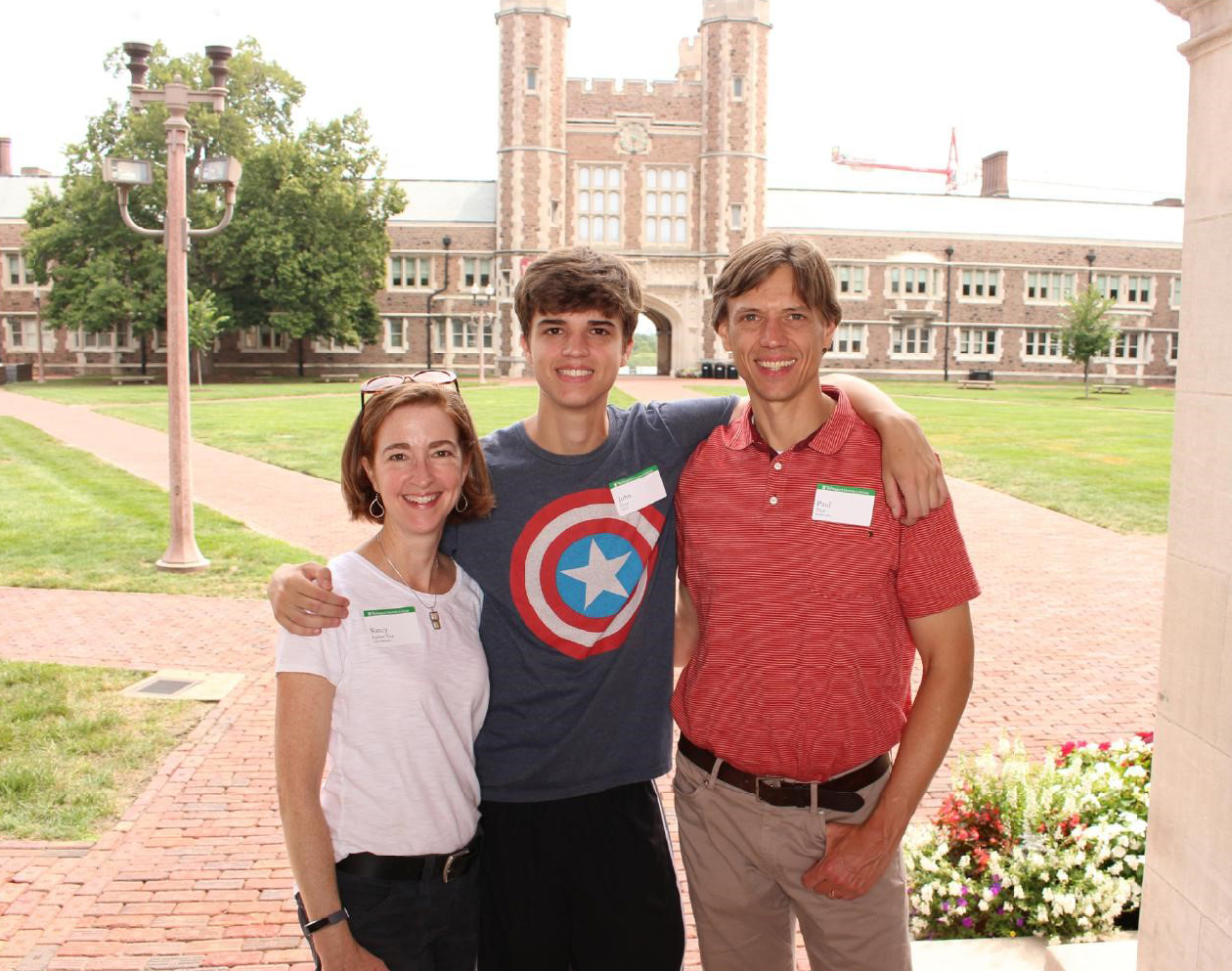
What excites you about the future of WashU?
Paul: First and foremost, the students. And second, the new School of Public Health, which overlaps with a lot of areas that interest us. I’m very excited for WashU to harness its interdisciplinary strengths to solve major societal problems.
Nancy: WashU is only as strong as the St. Louis region. I’m encouraged by the university’s rural outreach and the WashU Pledge. These initiatives make a WashU education more affordable and attainable for Missouri and Illinois students who may not have even considered the university before.
I’ve also seen WashU expand its commitment to helping students develop critical leadership skills. Across the university, students are preparing to be practical, effective advocates for their passions and within their fields. The university is intentionally equipping these students for careers, grad school, and being engaged citizens.
What does WashU mean to your family?
Paul: My father was very grateful to land at WashU, and it was my first choice of colleges. WashU is where I met Nancy. It’s a part of our origin story. Our son John decided to come here, but he and his brothers all have studied at Olin Library. They went to basketball camp here. Our youngest son learned to ride a bike on campus. It’s an institution for our family and so much more than just an education.
About the Eliot Society
The William Greenleaf Eliot Society recognizes donors who make Annual Fund gifts to WashU of $1,000 or more. As leaders of the Annual Fund, Eliot Society members provide unrestricted support for the university’s schools and programs each year.
